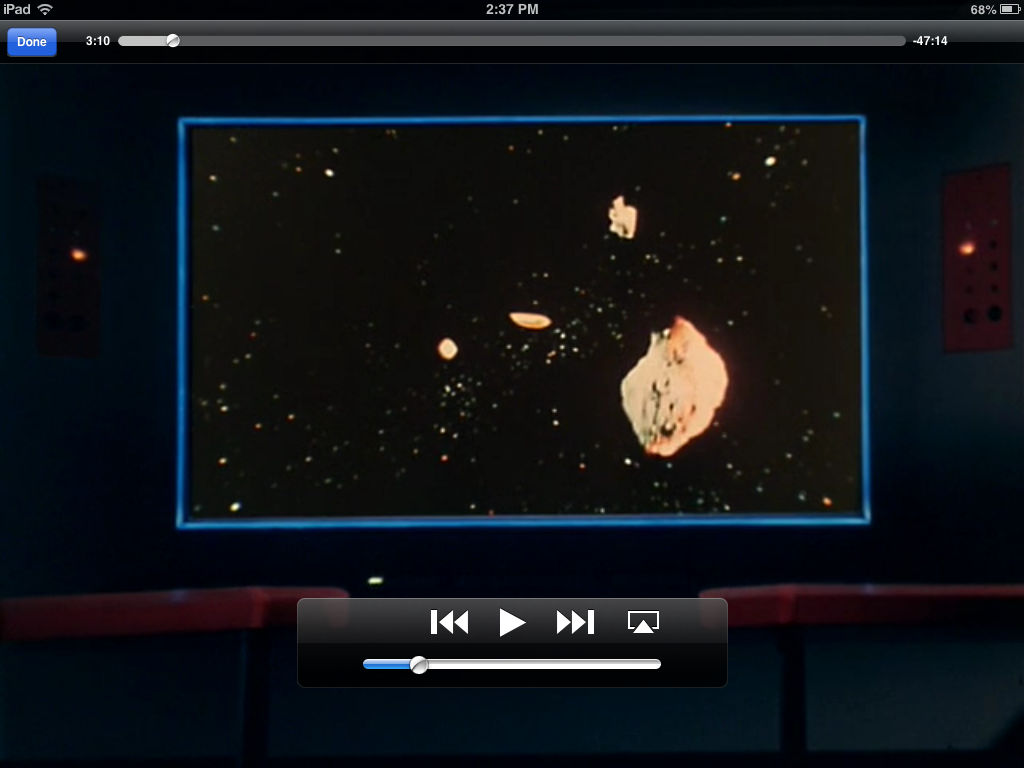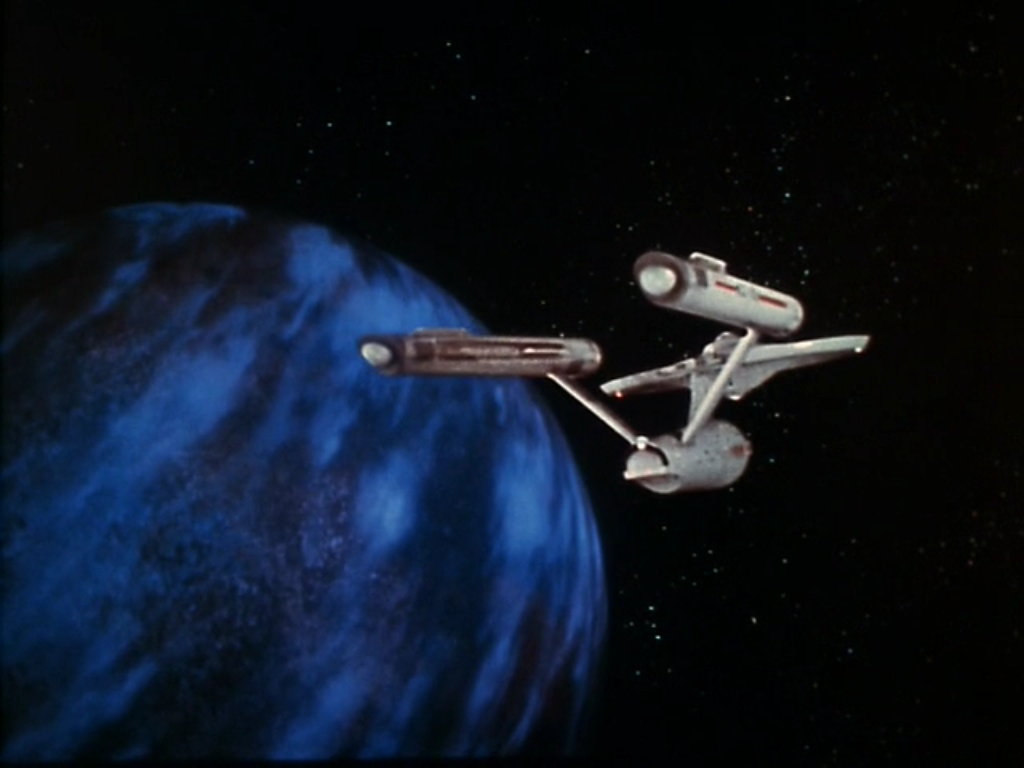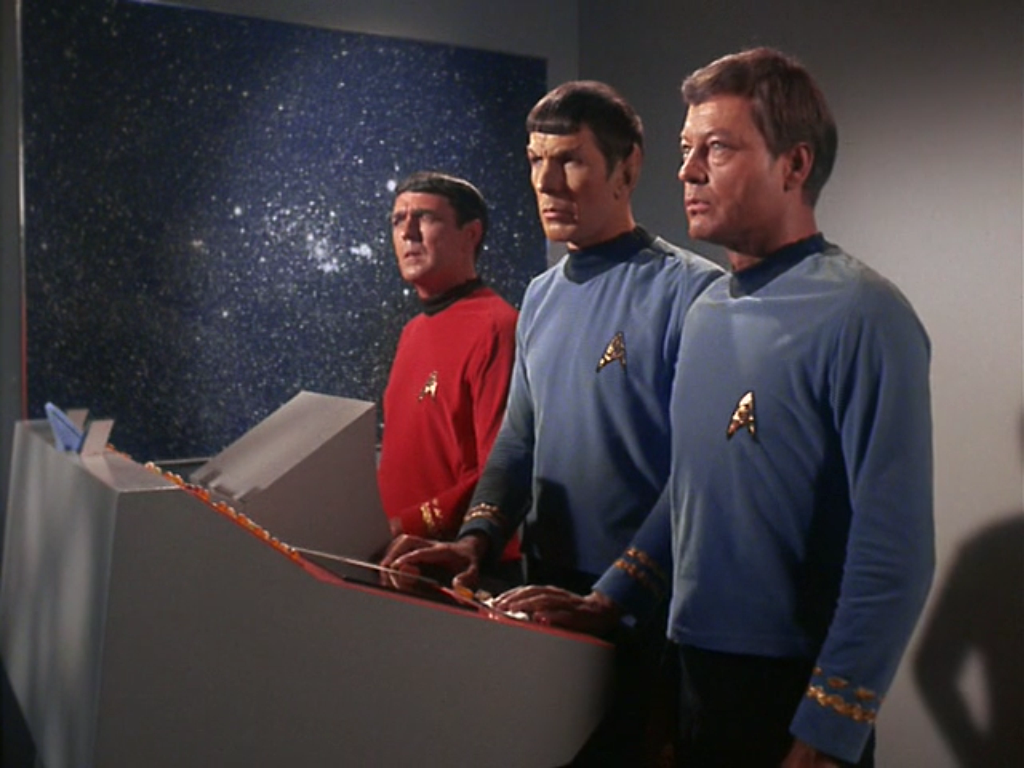Mudd's Women is the first somewhat lighthearted episode of Trek. It begins with the Enterprise pursuing a cargo ship. It enters an asteroid field in an attempt to evade the Enterprise but overloads its engines. In an attempt to rescue the crew, the Enterprise burns out its lithium crystals. Later in the series they will be called dilithium crystals.
 |
| Not so special special effects. The ship (center) with 3 asteroids. |
Scotty, Spock and McCoy in the Transporter Room:
What's that on the wall behind them? It is a wide-angle photo of the constellation Orion. The star just above Scotty's hair in the photo on the right is the star Rigel (more on that later).
"Walsh" reveals that the ladies aren't his crew. They are his cargo.
Kirk convenes a hearing where we learn that Walsh is really named Harry Mudd. He has been lying about his name (twice), his past offenses, and just about everything else. When Kirk asks Mudd if he has any defense to offer Mudd, played by Roger Carmel, delivers the best line of the episode: "Only heaven's own truth, which I've just given you. "
With the Enterprise operating on battery power, they head for Rigel 12. There, they will deal with the miners for new
 |
| In orbit about Rigel XII. |
Back to Trek. The fact that the women are Mudd's "cargo" shows that while Trek is often considered enlightened for its time, it is still rooted in a world where women are not always treated as equals. As Mudd explains the ladies are "destined for frontier planets to be the companions of lonely men, to supply that warmth of a human touch that's so desperately needed. A wife, a home, a family."
One would hope in the 23rd century that mail-order brides would have been a thing of the distant past. The show isn't known for equality of the genders. Kirk's womanizing became famous and inspired TV spots like this one:
Given the reputation that Kirk would build, it is remarkable that he steered completely clear of this trio.
It is revealed that the women are taking a Venus drug that influences their looks and makes the men so on edge. The good news here is that when Eve is given a placebo, instead of the Venus drug, she has the same reaction.
As Kirk and Mudd explain:
Kirk: There's only one kind of woman.In the end it works out. The Enterprise gets its
Mudd: Or man, for that matter.
Kirk: You either believe in yourself, or you don't.
Composer Fred Steiner wrote just over 22 minutes of music for this episode. It is dominated by the Venus theme which you can hear in this sample from La-La Land Records which has released the complete score to the original series of Star Trek.
All-in-all, Mudd's Women isn't even close to my favorite episode of Trek, neither does it rank down at the very bottom. Gender issues come up again in the next episode: The Enemy Within.





No comments:
Post a Comment